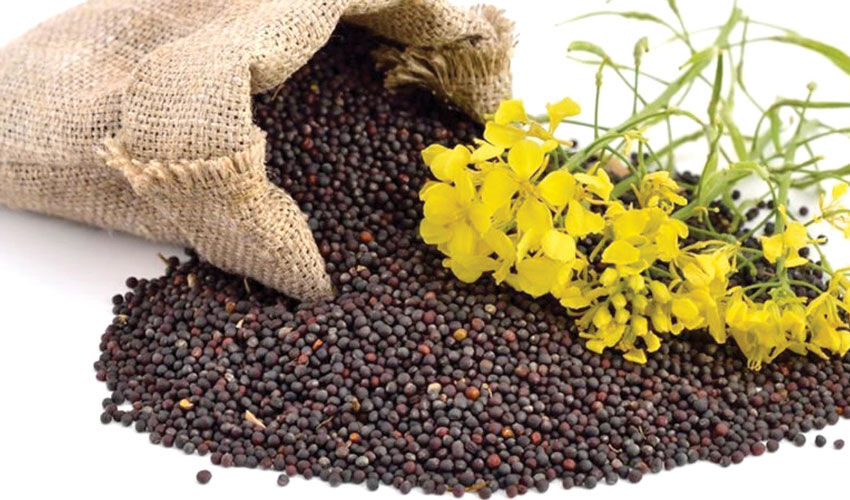
As the harvesting campaign progressed from the south to the north of the country, according to agricultural producers, the average yield of rapeseed increased from 2 t/ha to 3 t/ha. In some areas of the northern zone of the country, yields reached 3.5-4 t/ha in a significant number of farms. As a result, with the estimated total area of rapeseed crops at the level of 100 thousand hectares or even slightly more, its production in the country can greatly exceed 200 thousand tons.
According to traders, they will not be surprised by the final statistical data (when they appear) of the gross harvest-2025 of rapeseed in the Republic of Moldova at the level of 250-280 thousand tons.
For Moldova it will be a record volume of commodity rapeseed. And this is a serious resource of commodity even in the scale of the Black Sea region market. Especially if we take into account that estimates of professional organizations of Ukraine regarding rapeseed production in this country at the moment are much more modest than last year – only about 2.2-2.3 million tons from 1 million hectares (USDA forecast at the end of spring was much more optimistic – 3.7 million tons). In such a situation for the oilseed market of the Black Sea region, and Europe as a whole, it will be of great importance how rapeseed producing countries will dispose of their harvest.
In Ukraine, the “rules of the game” in the rapeseed market have changed dramatically. From August 1 of this year, export of Ukrainian rapeseed will be subject to a 10% duty. Ukroliaprom Association perceived this decision of the Verkhovna Rada as its own victory, for which the organization has been fighting for more than two decades. According to the association’s management, “the adoption of this bill in terms of establishing an export duty on rapeseed and soybeans will allow to increase their processing and increase exports of products with high added value”. Tentatively, the volume of rapeseed processing by Ukrainian enterprises will increase to 1.5-1.6 million tons. However, even the Ukrainian vegetable oil producers themselves “do not expect that at the first stage agricultural producers and their cooperatives will send all their oilseed raw materials for processing”.
There is an important nuance – export duties on rapeseed are applied only if the external supply is carried out by trading companies. Whereas rapeseed exports by Ukrainian agricultural producers are not subject to export duties.
According to Ukrainian media reports, the Ukrainian market has already reacted to this administrative change in the “rules of the game” in favor of some and to the detriment of other market players. Traders have started to reduce prices for rapeseed purchases under contracts in local currency by about 10% – from 24.5 to 23.9 hryvnias per ton. Prices for Ukrainian rapeseed under foreign currency contracts have remained unchanged so far – $535-540/t. Taking into account this circumstance, market analysts believe that the August duty on export rapeseed “will not stop its external supplies, but only reorient them to foreign currency contracts”.
In Moldova, such a powerful incentive for domestic processing as the export duty has not been, is not, and is not expected. But, at least, the Moldovan authorities have not included rapeseed in the list of goods, import of which is regulated (actually – limited) by licenses. That is, if the market situation is favorable, Moldovan processors of oilseeds will be able to import them, including from Ukraine.
In this regard, it is worth recalling once again that since the beginning of the harvesting campaign a rumor has been circulating in the corporate environment that Floarea Soarelui SA oil and fats plant plans to start the season-2025 with rapeseed processing. Sources close to the company’s administration claim that investments have been made to convert some production lines to receive and process rapeseed. Finally, this week the enterprise started buying this raw material on the internal market of Moldova – at the average market price. But, probably, we cannot exclude the possibility that in some perspective the enterprise will decide to buy rape directly from Ukrainian agricultural holdings. That is, those operators of the Ukrainian market who will benefit from the decision of the Verkhovna Rada to introduce customs duties on rapeseed exports for certain categories of exporters – namely, international trading companies.
In this regard, we should not discount the interesting nuance that transportation logistics often plays the “first fiddle” in the market of exchange agricultural products. In Ukraine, the infrastructure of many ports is controlled by transnational corporations (their rapeseed exports are taxed). And Floarea Soarelui SA, as the company’s management claims, is “the largest oil and fat factory within a radius of 300 kilometers from Balti”. In other words, the supply of raw materials to it from some regions of Ukraine is logical from the logistic point of view.
Over the past week in the Republic of Moldova prices for rapeseed increased by about 0.1-0.2 lei/kg. In the north, buyers offer 8.3-8.4 lei/kg for this agricultural product, in the south – 8.5-8.6 lei/kg. That is, as the prices for Moldovan rape grow, the option of its import from Ukraine for processing in Moldova becomes more and more realistic.
The problem is that during the long period of technical standstill of Floarea Soarelui SA, as some market analysts believe, this enterprise has lost the role of price-forming in the segment of oilseed raw materials. Moldovan farmers now treat it as one of many buyers, and in fact – not the largest.
Moreover, many Moldovan farmers in the current marketing season consider the most profitable buyers of grain and oilseed raw materials (not only rapeseed) to be multidisciplinary market operators. Those that both buy agricultural products and sell resources/materials for agricultural production. Such trading companies offer the highest prices for agricultural products of the new harvest. Taking into account that some part in the structure of this price is an offset of part of the farmer’s debt to the trader who previously sold seeds, pesticides, etc. to this farmer.
Finally, some market participants cooperating with Floarea Soarelui SA claim that trucks with rapeseed both enter and leave through the gates of the enterprise. It can hardly be inferred from this fact that the rapeseed enterprise will never start up and the raw material it has harvested will simply be exported. However, this fact (if it really takes place) adds new inputs for the already difficult analysis of the situation on the regional market of oilseed raw materials.

